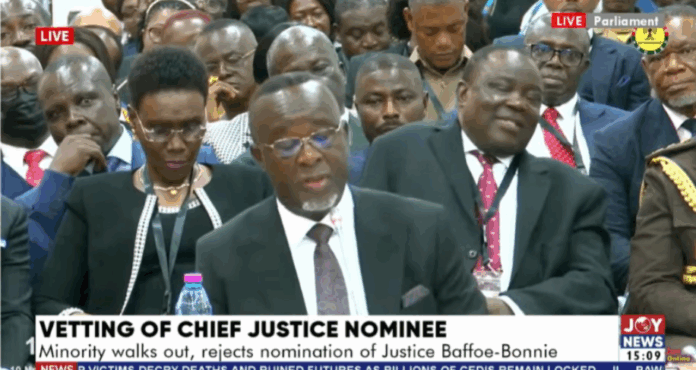Chief Justice nominee, Justice Paul Baffoe-Bonnie, has proposed that Ghana’s general elections be held on November 7 instead of the traditional December 7.
The change, he explained, would provide enough time for any election-related petitions to be heard and resolved before the inauguration of a new government.
Justice Baffoe-Bonnie made the proposal during his vetting by Parliament’s Appointments Committee on Monday, November 10, 2025, in response to concerns about delays in resolving electoral disputes.
Currently, national elections are held on December 7, with the swearing-in of a new government taking place a month later on January 7. This short interval, he observed, makes it difficult for the courts to conclude any election petitions before the incoming administration assumes office.
According to him, shifting the election date to early November would enable both political parties and the judiciary to address disputes more effectively and transparently.
“After the election petition, we came to the conclusion that it should be possible to have petitions concluded before January 7, which is the inauguration day. The best suggestion that came up was to hold elections on November 7 or 8,” he explained.
He further noted that if elections were held in early November, results could be declared by November 10, providing about 57 days — from mid-November to early January — to deal with any potential legal challenges.
“Assuming we go by the 42-day window provided by CI 99, petitions can be filed, responded to, and tried within that period,” he added.
Justice Baffoe-Bonnie also called for the adoption of electronic service of court documents to reduce the delays associated with manual delivery.
“Every originating process has to be served personally on the respondent. But in this age, we can use digital addresses or phone numbers for online contact. If petitions are served electronically, it can take three days instead of a week,” he said.
He emphasised that with such reforms, election petitions could be completed by November 30, allowing trials to conclude within two weeks — a move he believes would enhance fairness, efficiency, and public confidence in the electoral justice process.



